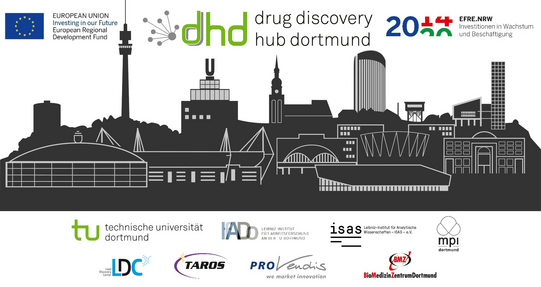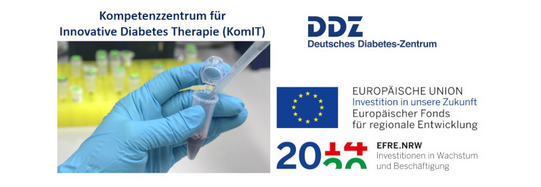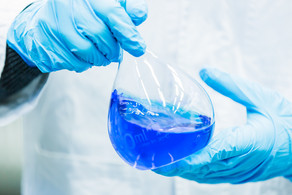Research
Bringing Chemistry to Life
The Rauh group focuses on chemical biology, protein X-ray crystallography and medicinal chemistry research. We employ organic synthesis, structural biology, structure-based ligand design, biochemical and cellular compound screening, as well as target identification for the development of inhibitors and functional probes to target proteins with relevance to cancer.
Over the last decade, the Rauh group has collaborated very successfully with oncologists from university hospitals throughout NRW on translational aspects of acquired drug resistance in lung cancer and pioneered the field of chemical oncology.
We developed the widely applicable FLiK technologies (Fluorescent Labels in Kinases), which allow for the identification and characterization of allosteric kinase modulators from compound libraries in high-throughput. The Rauh Lab has established a Robotics Assisted Screening Platform for Efficient Ligand Discovery (RASPELD) that can be utilized for a variety of screening campaigns.
Prof. Daniel Rauh is co-founder of the Zentrum für integrierte Wirkstoffforschung (ZIW) and coordinates the “Drug Discovery Hub Dortmund” (DDHD) at TU Dortmund University, which translates basic academic research into pharmaceutical application.
The TU Dortmund University centrally leads and coordinates the Drug Discovery Hub Dortmund (DDHD) at the „Zentrum für integrierte Wirkstoffforschung“ (ZIW). The DDHD is an EFRE-funded consortium consisting of partners from both academia and industry with the primary objective of translating basic academic research into pharmaceutical application.

Within the framework of “KomIT - Center of Competence for Innovative Diabetes Therapy” (https://komit-nrw.de/ - implement as hyperlink), the DDHD will contribute by scouting for innovative research projects and follow-up studies that focus on diabetes-related indications and comply with the criteria of feasibility, patent situation, and potential for a joint validation and refinement.
The KomIT research platform is conducting proof-of-concept studies aiming to optimize both the different modules of the infrastructure and to generate new knowledge on the beta-cell protective function modulating relevant receptor target upon ligand binding. This research is driven by recent findings of potential beta-cell replacement in response to pharmacological treatment in animal models.






